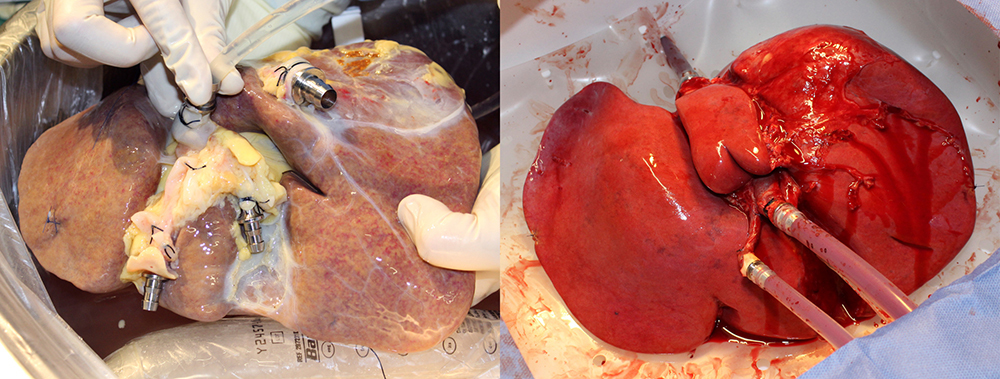Zurich researchers have created a machine capable of repairing damaged human livers and keeping them alive outside the body for up to a whole week. On the day of giving, only a few hours can be preserved, around nine. This means that with this advance, the number of organs available for transplants would increase and many more lives of people with severe liver disease and cancer would be saved.
And all, thanks to the rescue of injured livers that in current practice would never be used to perform a transplant. With the new perfusion technology developed in Switzerland, these organs can be fully recovered , through the repair of pre-existing lesions, the cleaning of fat deposits or even the regeneration of partial livers.
According to the study just published in the journal ' Nature Biotechnology ', six out of 10 human livers that had been rejected for transplants in different centers in Europe regained normality after being perfused for seven days.
The key is in this "complex" perfusion system, which "mimics most body functions, including automated glucose and oxygenation management, disposal of waste products and hematocrit control," such and as the authors explain, from the University and the University Hospital of Zurich and the Wyss research center and the ETH technical school, also from the largest city in Switzerland. "We started with pig livers and when we checked the viability without the need for additional blood products, we passed to the human organs."
After being preserved for a week in a medium similar to their physiological situation within the organism, the organs showed a preserved function and an intact liver structure in the histological analysis.
This solution "would allow us to regenerate invalid livers," said Beatriz Domínguez-Gil , director of the National Transplant Organization (ONT). Given that the average age of the donor in Spain is 60 years and a third of them are in asystole, about 20% -30% of the livers do not meet the standards for transplantation. "With this system," apart from facilitating for a longer period of preservation of the organ, the organs that are rejected today will be recovered ". Domínguez-Gil emphasizes the" enormous utility of these works ", although he remembers that" it is still very preliminary ".
Almost five years have passed since this group of surgeons, biologists and engineers started this project that has given these good results. "Our proposal opens a great path for many applications that offer a new life for many patients with liver disease or end-stage cancer," the researchers say. However, they add, "it will be necessary to perform tests with higher quality livers and the transplantation of these organs perfused in human receptors."
At present, the human liver remains outside the body for only about nine hours, maximum 12. It is usually stored on ice, with a preservative solution at temperatures between four and eight degrees Celsius. The organ would survive longer to less degrees, but with the risk of causing serious damage.
According to the criteria of The Trust Project
Know more- Science and Health
According to the WHOCae for the first time the world consumption of tobacco among men
Society The surgeon who recorded porn videos alleges mystical delusions and demonic possession to postpone a trial
Interview "The next personalized medicine will take into account gender"

